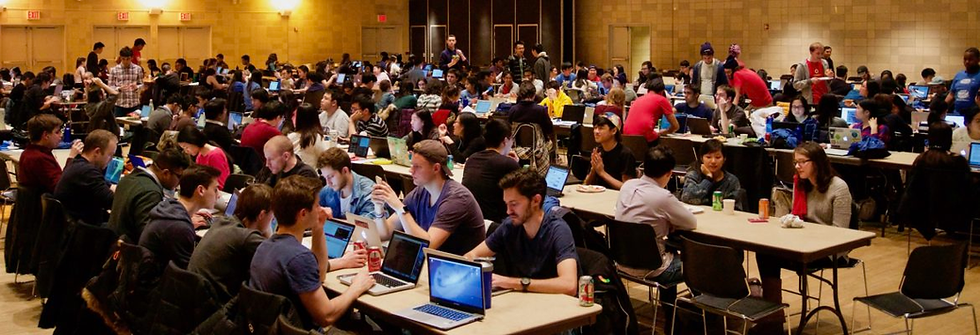Hackathon: the marathon for programmers
- UFRJ Nautilus
- Mar 3, 2021
- 2 min read
Updated: May 10, 2021
The word “Hackathon” comes from a mixture of the words “hacker” and “marathon”. It is an event where people who are fond of software development, like programmers, designers and other professionals get together to create functional products to solve a problem. In the end, it is a big competition of ideas. Some examples of challenges proposed in these events are to mitigate environmental disasters, increase the efficiency and safety of deliveries during the Covid-19 and enrich the routine of truck drivers.
Hackathons come in different shapes and sizes, they can be online or in person, huge, with thousands of participants from various countries or small, only for employees of an enterprise, but normally they last from 24 to 72 hours. They are commonly organized by business companies that want solutions for their internal issues or by groups specialized in creating these events and sponsored by companies interested in the proposed solutions. Some examples can be found in the images below:
The best ideas in these events can receive financial rewards and help to be developed into a startup. This is the greatest objective of a hackathon: to stimulate great ideas that have the potential to ameliorate something in other people’s lives or a branch of the market. Some renowned apps, like EasyTaxi and Carousell were born in hackathons.
In 2020, due to the pandemic, a lot of hackathons proposed challenges related to the coronavirus and quarantine. The event “Code the Curve”, a global hackathon that happened in April 2020, suggested to the competitors three different options of challenges, all within the context of the pandemic. The overall winner was the group X-COV. They developed a system capable of analyzing thoracic X-Rays and returning data that could help doctors make their decisions faster. This was the result of 3 days of work, gathering artificial intelligence, machine learning, image recognition and other tools.


Participating in a hackathon is an intense and stressful experience, consuming hours of hard work and sleep, but the effort certainly is worth it. It is an opportunity to know people from other fields, learn to work in a team and under pressure, solve real-world problems, and you might even end up with your own start up. In addition, hackathons are events for innovation and collaboration and just getting to the end of it is an accomplishment in itself. After all, having an idea, testing, executing and selling it to the judges in a weekend is no easy task.

The same idea applied in hackathons can be used for other kinds of events, for instance, “Game Jams” is organized in a similar fashion to Hackathons, but its goal is quite different: In these events, each team has to create and present a game and, even though it is mostly about videogames, it can also be about card or board games.
Written by Marina Daumas.







Comentarios